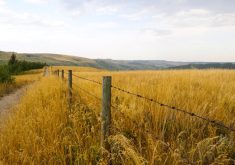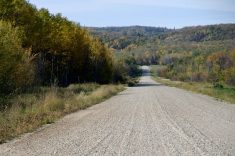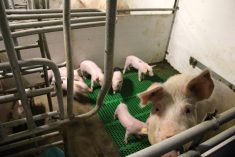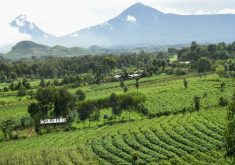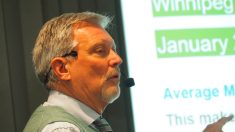Facts are a key element of informed decision making, and not just any facts; the best, most tied-to-reality facts are needed to make the best decision.
“Alternative” facts, meanwhile, only exist in alternative universes, and people use them at their own intergalactic peril.
But that is what Verra, “the world’s leading carbon standard for the rapidly growing $2 billion voluntary [carbon] offset market,” appears to have done for years, according to a January article from The Guardian.
Read Also

Spoken questions are what make it an interview
Recently, I was exchanging emails with the media email account at a government agency, hoping to reach a source for…
According to the newspaper, research found that over 90 per cent of the “rainforest offset credits,” packaged by Verra and purchased by greenie-wannabes like Shell, Disney and Gucci, “are likely to be ‘phantom credits’ and do not represent genuine carbon reductions.”
Specifically, that means that 94 per cent of the credits Verra sold to “internationally renowned companies” had no benefit to the climate at all. Moreover, The Guardian continued, “the threat to forests had been overstated by about 400 (per cent) for Verra projects.”
The findings hit experts like Barbara Haya, the director of the Berkeley Carbon Trading Project, like a sledgehammer. After all, reported The Guardian, Haya “has been researching carbon credits for 20 years, hoping to find a way to make the system function.”
“The implications of this analysis are huge,” she told the newspaper. “Companies are using credits to make claims of reducing emissions when most of these credits don’t represent emissions reductions at all.”
Huge, sure, but it mirrors what others found whenever forest carbon offsets are examined. For example, when a ProPublica reporter dug into forest-based CO2 offsets four years ago, she found the same sorry results as The Guardian.
“In case after case,” wrote Lisa Song in her story, An (Even More) Inconvenient Truth, “I found that carbon credits hadn’t offset the amount of pollution they were supposed to, or they had brought gains that were quickly reversed or that couldn’t be accurately measured…”
Several ag researchers have sent up similar flares to warn farmers that carbon markets may not benefit the farm, the farmer or the planet. To start, today’s highly industrialized farming makes long-term carbon sequestration — the key to selling any carbon credit — a tricky feat.
Second, there are few market rules in any ag-carbon credit market for the farmer or buyer to follow, noted J. David Aiken, an ag economist who specializes in water and ag law at the University of Nebraska-Lincoln.
That market is akin to “the wild, wild west,” he wrote in a 2021 paper.
The reason is simple, he wrote: “No rules or regulations exist, so let the buyers and sellers beware. From where I sit, the two largest players appear to be speculators and pilot project developers.”
But the lack of transparent markets, standardized rules or even solid agronomic science behind carbon sequestration has not kept the U.S. government from entering and juicing the nascent, unproven enterprise.
Last year’s bipartisan omnibus spending bill included the Growing Climate Solutions Act, meant to encourage participation in the climate market.
Other experts like William Rees, University of British Columbia emeritus professor and co-creator of the human eco-footprint measurement, later renamed the “carbon footprint”, are far more clear-eyed on carbon sequestration, carbon trading and carbon “net neutrality.”
“Carbon neutrality,” Rees wrote in an April 17 email, “… is an engineer’s fantasy and popular wishful thinking. Or, as I like to put it, ‘humanity’s propensity for socially constructing comforting shared illusions.’”
The takeaway is clear: There’s nothing neutral about carbon neutrality and our wishful thinking won’t make it so.
– The Farm and Food File is published weekly throughout the U.S. and Canada.



